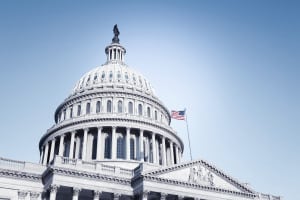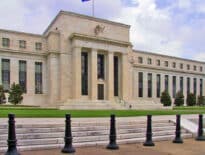The White House and Senate leaders of both major political parties announced agreement early Wednesday on an unprecedented $2 trillion emergency bill to rush sweeping aid to businesses, workers and a health care system slammed by the coronavirus pandemic.
The urgently needed pandemic response measure is the largest economic rescue measure in history and is intended as a weeks-long or months-long patch for an economy spiraling into recession and a nation facing a potentially ghastly toll.
Top White House aide Eric Ueland announced the agreement in a Capitol hallway shortly after midnight, capping days of often intense haggling and mounting pressure. Some final pieces of the agreement need to be finalized in detailed legislative language.
The Senate is likely to pass the measure Wednesday afternoon. In the House, both Democratic and Republican leaders hope to clear the measure for President Donald Trump’s signature by a voice vote without having to call lawmakers back to Washington, but that may prove challenging, as the bill is sure to be opposed by some conservatives upset at its cost and scope. Ardent liberals were restless as well.
The economic rescue package would give direct payments to most Americans, expand unemployment benefits and provide a $367 billion program for small businesses to keep making payroll while workers are forced to stay home.
One of the last issues to close concerned $500 billion for guaranteed, subsidized loans to larger industries, including a fight over how generous to be with the airlines. Hospitals would get significant help as well.
What’s in the Bill
On Capitol Hill, five days of arduous talks produced the bill, creating tensions among Congress’ top leaders, who each took care to tend to party politics as they maneuvered and battled over crafting the legislation. But failure was never an option, which permitted both sides to mark big wins.
Even before the deal was reached, news of the likely but elusive agreement had sent the stock market rocketing on Tuesday. The rescue package would be larger than the 2008 bank bailout and 2009 recovery act combined.
The package would give one-time payments of $1,200 per adult and $500 per child directly to the public.
A huge cash infusion for hospitals expecting a flood of COVID-19 patients grew during the talks at the insistence of Sen. Chuck Schumer, the Democratic leader, while Republicans pressed for tens of billions of dollars for additional relief to be delivered through the Federal Emergency Management Agency, the lead federal disaster agency.
Democrats said the package would help replace the salaries of furloughed workers for four months, rather than the three months first proposed. Furloughed workers would get whatever amount a state usually provides for unemployment, plus a $600 per week add-on, with gig workers like Uber drivers covered for the first time.
“It ensures that all workers are protected whether they work for businesses small, medium or large, along with self-employed and workers in the gig economy,” Schumer said.
Transparency Measures Included
Schumer also announced that businesses controlled by Trump and his immediate family members – or members of Congress – would be ineligible for assistance from receiving loans or investments from new Treasury programs. The New York Democrat immediately sent out a roster of negotiating wins for transit systems, hospital, and cash-hungry state governments that were cemented after Democrats blocked the measure in votes held Sunday and Monday to maneuver for such gains.
Republicans won inclusion of an “employee retention” tax credit that’s estimated to provide $50 billion to companies that retain employees on payroll and cover 50 percent of workers’ paychecks. Companies would also be able to defer payment of the 6.2 percent Social Security payroll tax.
Democrats pointed to gains for hospitals, additional oversight of the huge industry stabilization fund and money for cash-strapped states. A companion appropriations package ballooned as well, growing from a $46 billion White House proposal to more than $300 billion, which dwarfs earlier disasters – including Hurricane Katrina and Superstorm Sandy combined.
To provide transparency, the package is expected to create a new inspector general and oversight board for the corporate dollars, much as was done during the 2008 Troubled Asset Relief Program bank rescue, officials said.
For most people, the new coronavirus causes mild or moderate symptoms, such as fever and cough that clear up in two to three weeks. For some, especially older adults and people with existing health problems, it can cause more severe illness, including pneumonia and death. The vast majority of people recover.
The virus has caused a global pandemic that has sickened more than 425,000 people and killed about 19,000 worldwide. In the United States, more than 55,000 people have been sickened and more than 800 have died.




 |
| 


